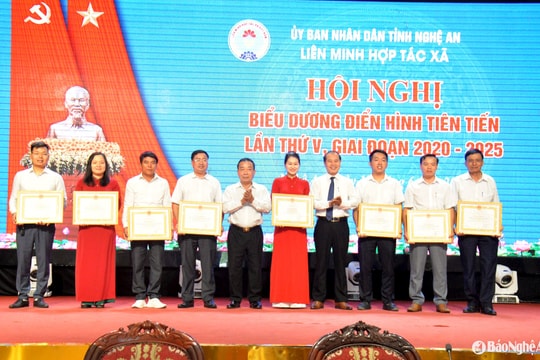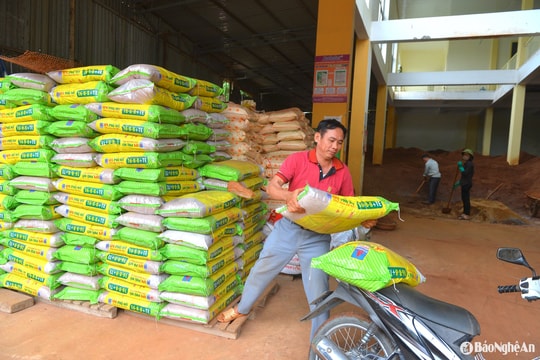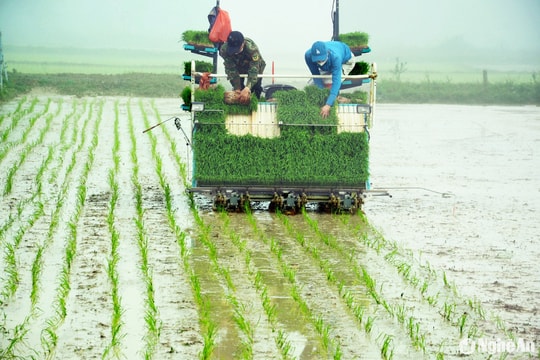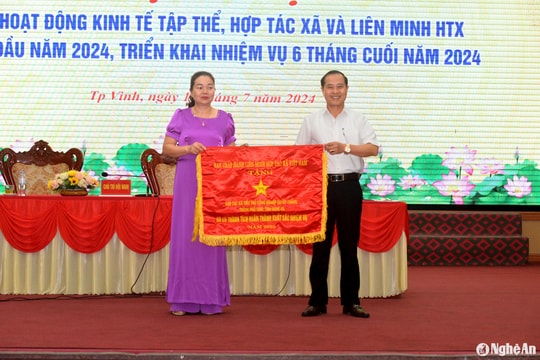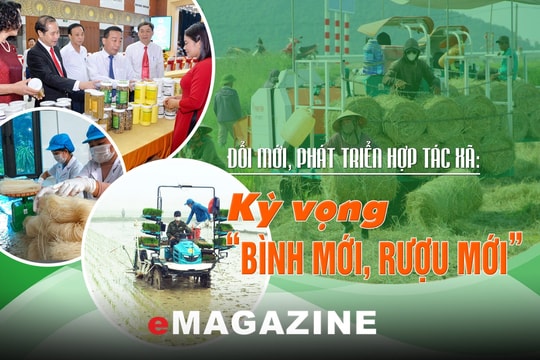Building an advanced collective economic and cooperative management model
(Baonghean.vn) - This is the emphasis of Prime Minister Pham Minh Chinh when mentioning the orientation, tasks, and solutions to develop the collective economy and cooperative economy in our country in the coming time.
On the morning of February 15, the Government held a national conference to review 20 years of implementing Resolution No. 13-NQ/TW on collective economy and 10 years of implementing the Law on Cooperatives 2012 in person and online.
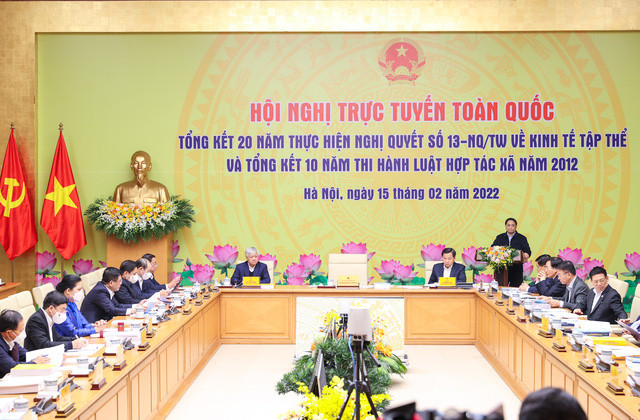 |
| The Prime Minister chairs the national online conference on collective economy and cooperatives. Photo: VGP/Nhat Bac |
Comrade Pham Minh Chinh - Politburo member, Prime Minister chaired and directed the conference at the Government headquarters. Co-chairing the conference were comrades: Do Van Chien - Secretary of the Party Central Committee, Chairman of the Central Committee of the Vietnam Fatherland Front; Le Minh Khai - Secretary of the Party Central Committee, Deputy Prime Minister, Head of the Steering Committee for Innovation and Development of Collective Economy and Cooperatives, comrades of the Party Central Committee, Ministers of several ministries and branches.
At the Nghe An province bridge, comrades: Thai Thanh Quy - Member of the Party Central Committee, Secretary of the Provincial Party Committee, Head of the Provincial National Assembly Delegation, Chairman of the Provincial People's Council; Nguyen Duc Trung - Deputy Secretary of the Provincial Party Committee, Chairman of the Provincial People's Committee co-chaired.
Also attending were comrade Hoang Nghia Hieu - Member of the Provincial Party Standing Committee, Vice Chairman of the Provincial People's Committee; representatives of leaders of a number of departments, branches; enterprises, cooperatives, and People's Credit Funds.
CONTRIBUTION OF COLLECTIVE ECONOMY TO GDP IS DECREASING
Over the past 20 years, along with the process of economic innovation and international economic integration, the KTTT sector has gone through different stages of development, with certain advantages, difficulties and challenges.
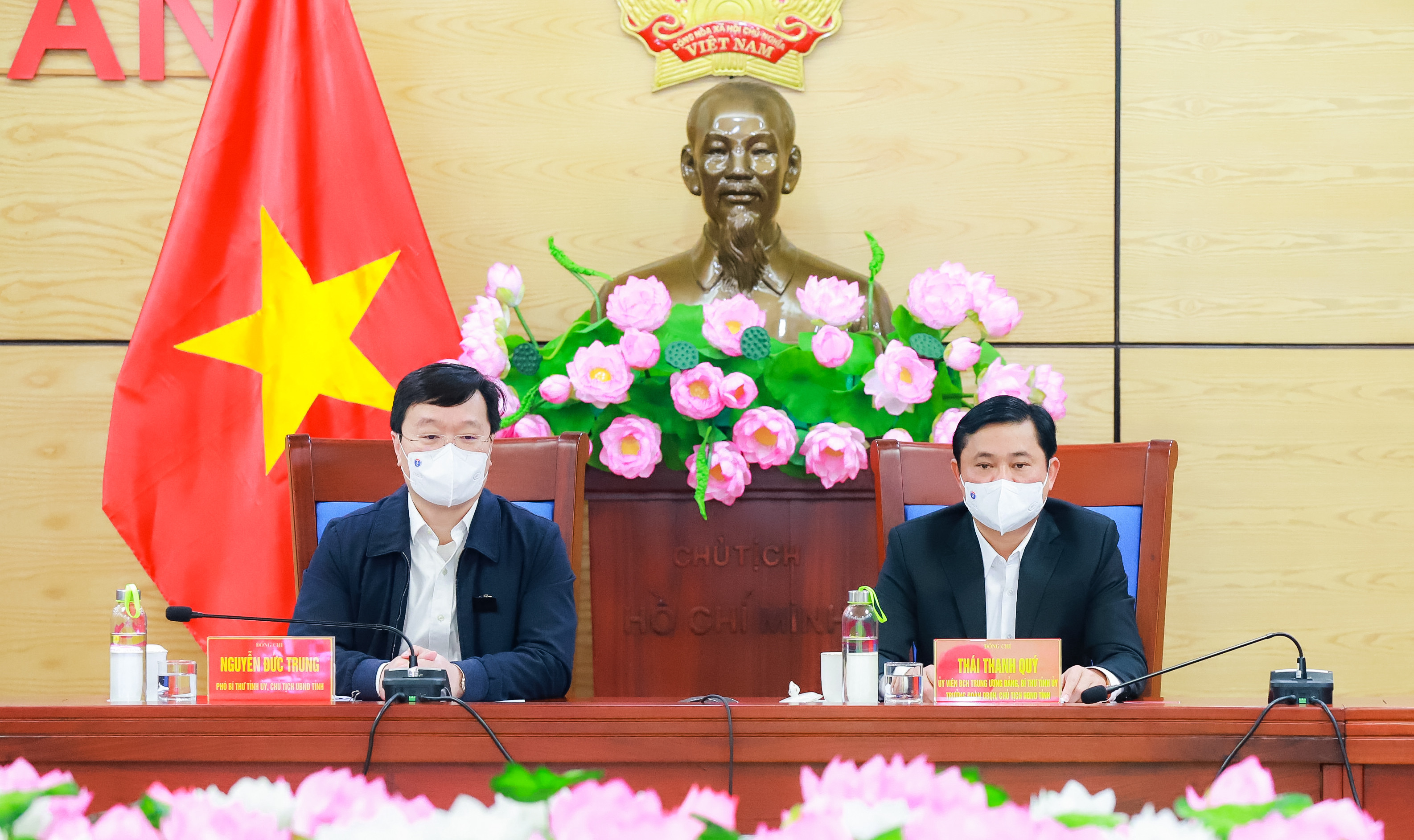 |
| Comrades: Thai Thanh Quy - Member of the Party Central Committee, Secretary of the Provincial Party Committee, Head of the Provincial National Assembly Delegation, Chairman of the Provincial People's Council; Nguyen Duc Trung - Deputy Secretary of the Provincial Party Committee, Chairman of the Provincial People's Committee co-chaired at the Nghe An province bridge. Photo: Thanh Duy |
The most prominent is the change from the ineffective cooperative model to the autonomous, self-responsible cooperative model. The collective economic sector with many diverse types of cooperative economic organizations, in which the core is the cooperative as one of the important economic components, has partly overcome the long-standing weakness, gradually innovated in association with the market mechanism, initially asserting itself as an important factor contributing to ensuring social security, political stability at the grassroots level and the economic development of the country.
As of December 31, 2021, there were 27,342 cooperatives nationwide (18,327 agricultural cooperatives and 9,015 non-agricultural cooperatives), attracting nearly 6 million members. The number of cooperatives increased by 16,420 (about 2.5 times) compared to 2001, the number of cooperative members increased by 465,603 (about 9%) compared to 2001. The number of workers in cooperatives was 1,078,000, an increase of 549,693 (2 times) compared to December 31, 2001.
The country also has 103 cooperative unions (79 agricultural cooperative unions and 24 non-agricultural cooperative unions), an increase of 9.3 times compared to 2001.
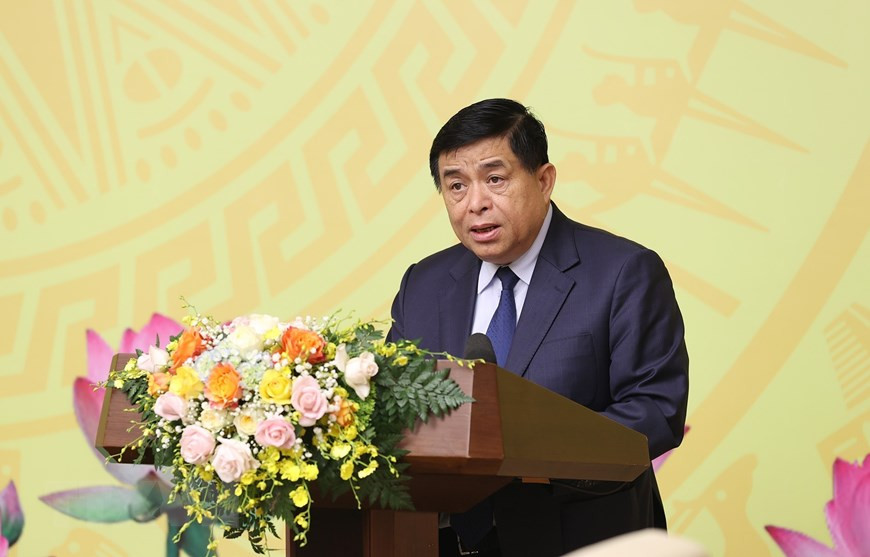 |
| Minister of Planning and Investment Nguyen Chi Dung presented a summary report summarizing 20 years of implementing Resolution No. 13-NQ/TW and 10 years of implementing the 2012 Law on Cooperatives. Photo: VNA |
However, after 20 years of implementing the Resolution, along with the rapid changes in the economy, our country's market economy sector still has many existing problems, and has not yet fully exploited its potential in supporting the economic development of its members as well as contributing to the economic development of the country.
Continuously over the past 20 years, the growth rate of the collective economy and cooperatives has been low and has tended to decrease, only about half of the growth rate of the economy. The contribution of the collective economy to the country's GDP has continuously decreased from 8.06% in 2001, 6.65% in 2005, 3.99% in 2010 and 3.62% in 2020.
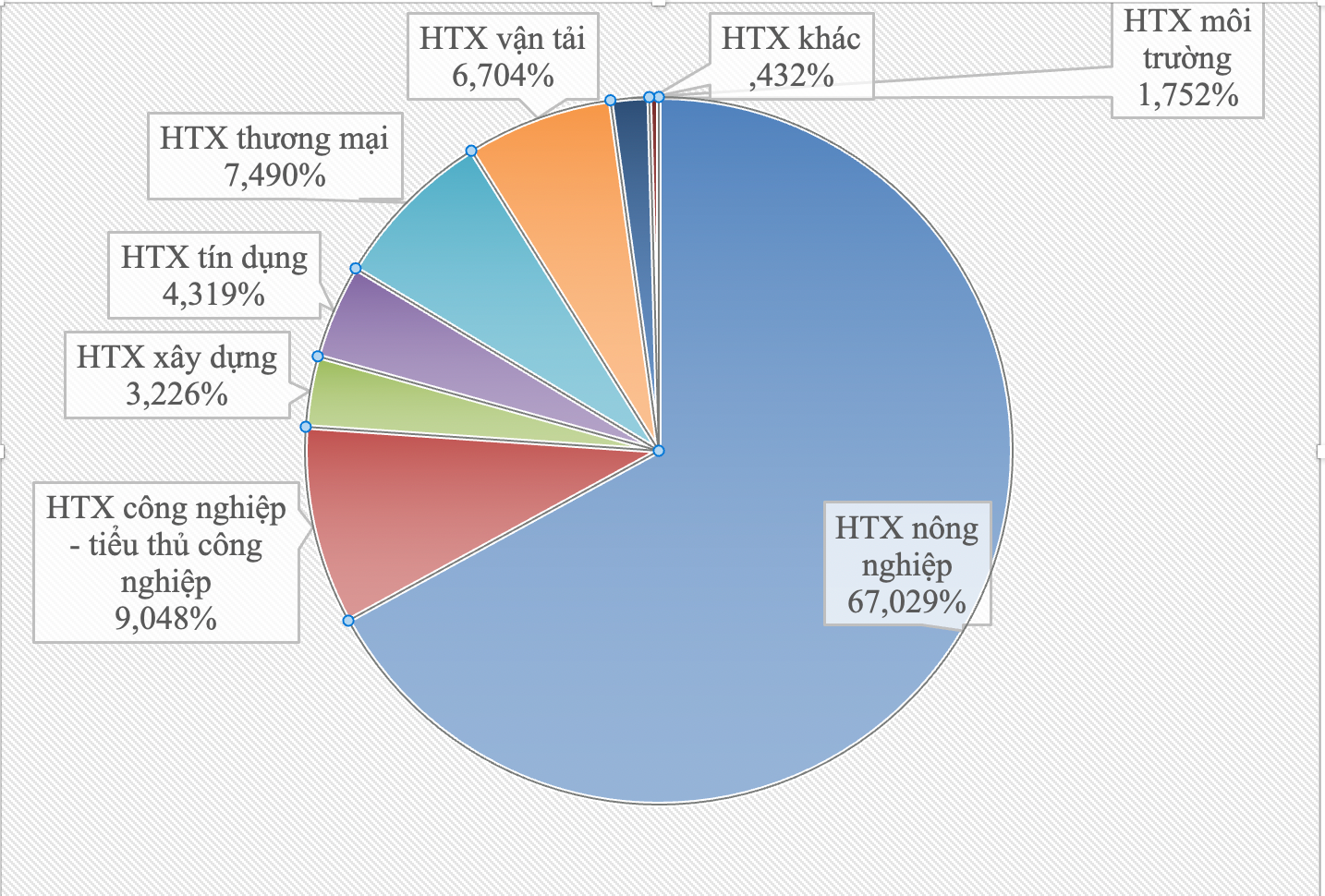 |
| Percentage of cooperatives in our country operating in various fields. Photo: Thanh Duy |
The development results of the market economy sector compared to the goal set out in the Resolution, which is "to help the market economy escape from current weaknesses, strive to achieve an increasingly high growth rate, and move towards having an increasingly large proportion in the GDP of the economy", are not achieved.
Faced with the above situation, and to meet the requirements set forth in the new context, delegates spent appropriate time to comprehensively evaluate the implementation results and development situation of the KTTT.
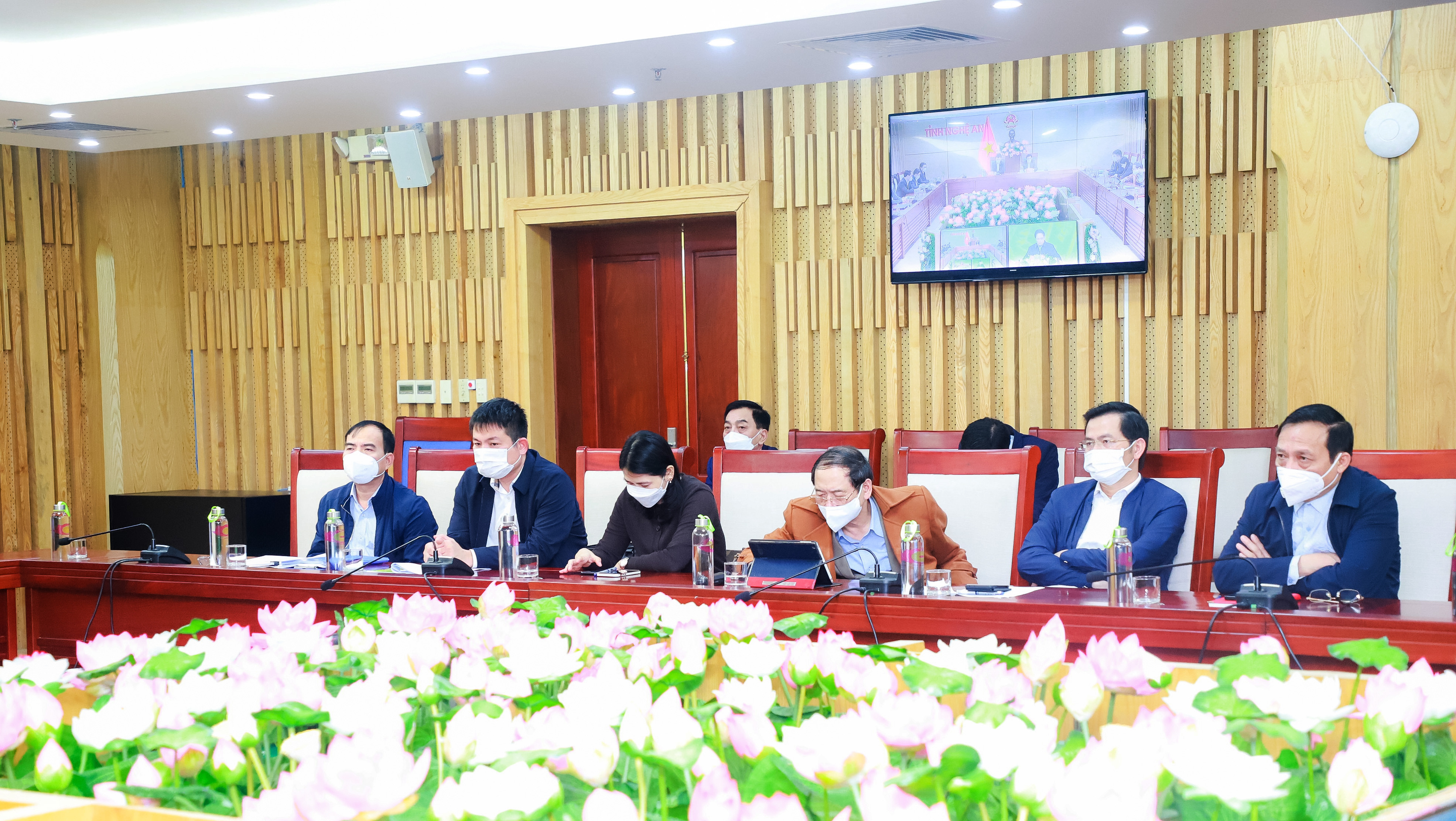 |
| Delegates attending the conference at the Nghe An province bridge. Photo: Thanh Duy |
In particular, the results achieved clearly indicate the limitations; from which to draw out the causes, especially subjective causes; lessons learned; and at the same time determine the direction, goals, contents, and specific measures in the following years to achieve the goal of developing the sustainable economic and cooperative sector, as the foundation of the national economy.
PERFECTING INSTITUTIONS, REMOVING BOTTOM LINES FOR THE COLLECTIVE ECONOMY
In his concluding remarks at the conference, Prime Minister Pham Minh Chinh emphasized the importance and affirmed that the role, potential, room and development space of collective economy and cooperatives, especially agricultural cooperatives, are still very large.
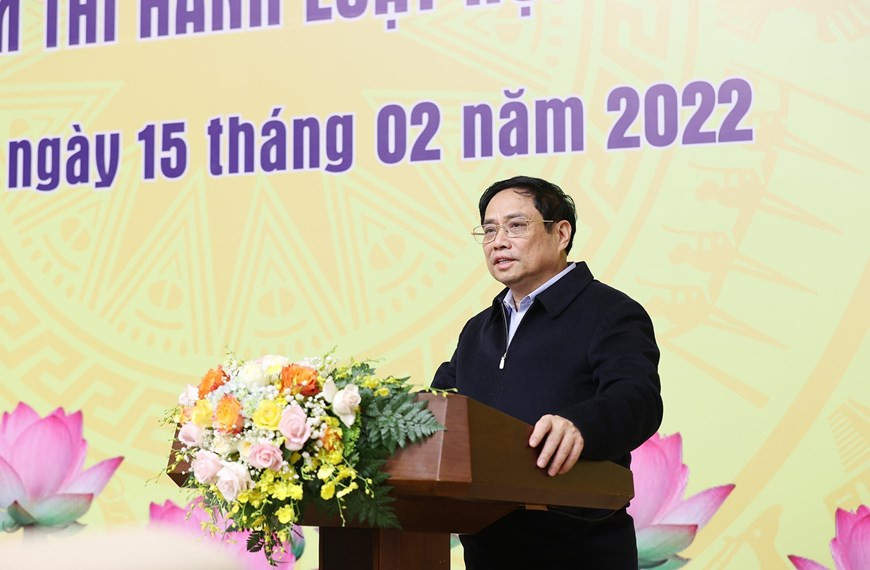 |
| Prime Minister Pham Minh Chinh delivered a concluding speech at the conference. Photo: VNA |
After pointing out the limitations and lessons learned, the Prime Minister emphasized the key tasks and orientations in the coming time to develop the collective economy and cooperative economy.
It is necessary to continue researching and building mechanisms and policies suitable to the new situation and reality in Vietnam; continue to perfect institutions and remove institutional bottlenecks in the direction of respecting the market economy and socialist orientation.
The Prime Minister also requested the application of innovation, science and technology, especially high technology and digital technology, in the transformation of the green economy, circular economy and knowledge economy; mobilizing all legal resources for development, especially public-private partnership.
It is especially necessary to summarize and build an advanced model of collective economic and cooperative economic management, combining traditional models suitable to the situation in Vietnam as well as international experience.
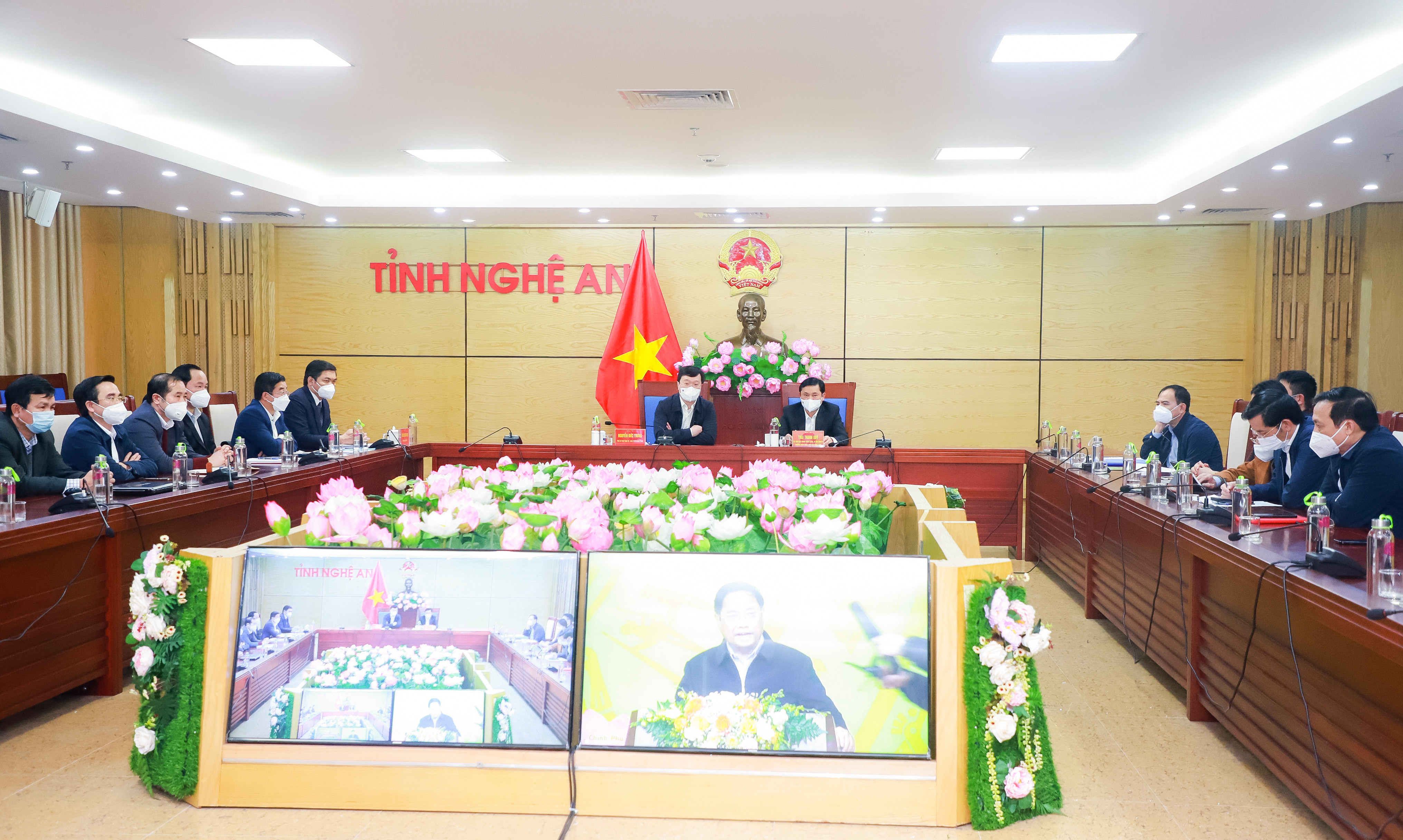 |
| Panorama of the conference at the Nghe An Provincial People's Committee bridge. Photo: Thanh Duy |
Prime Minister Pham Minh Chinh requested the need to create healthy competition, associated with market expansion; strengthen joint ventures and partnerships; build product brands according to chains, strengths of each region and area; plan reasonable raw material areas; improve the capacity of staff and participants.
In particular, with the spirit of taking farmers as the center, taking the countryside as the foundation, taking agriculture as the driving force, the head of the Government emphasized the role of cooperatives in agriculture. Therefore, it is necessary to build agricultural cooperatives to overcome the situation of fragmented, small-scale, divided, and spontaneous production in the recent past; thereby building product value chains, planning raw material areas and exporting products through new official channels to create stable output.
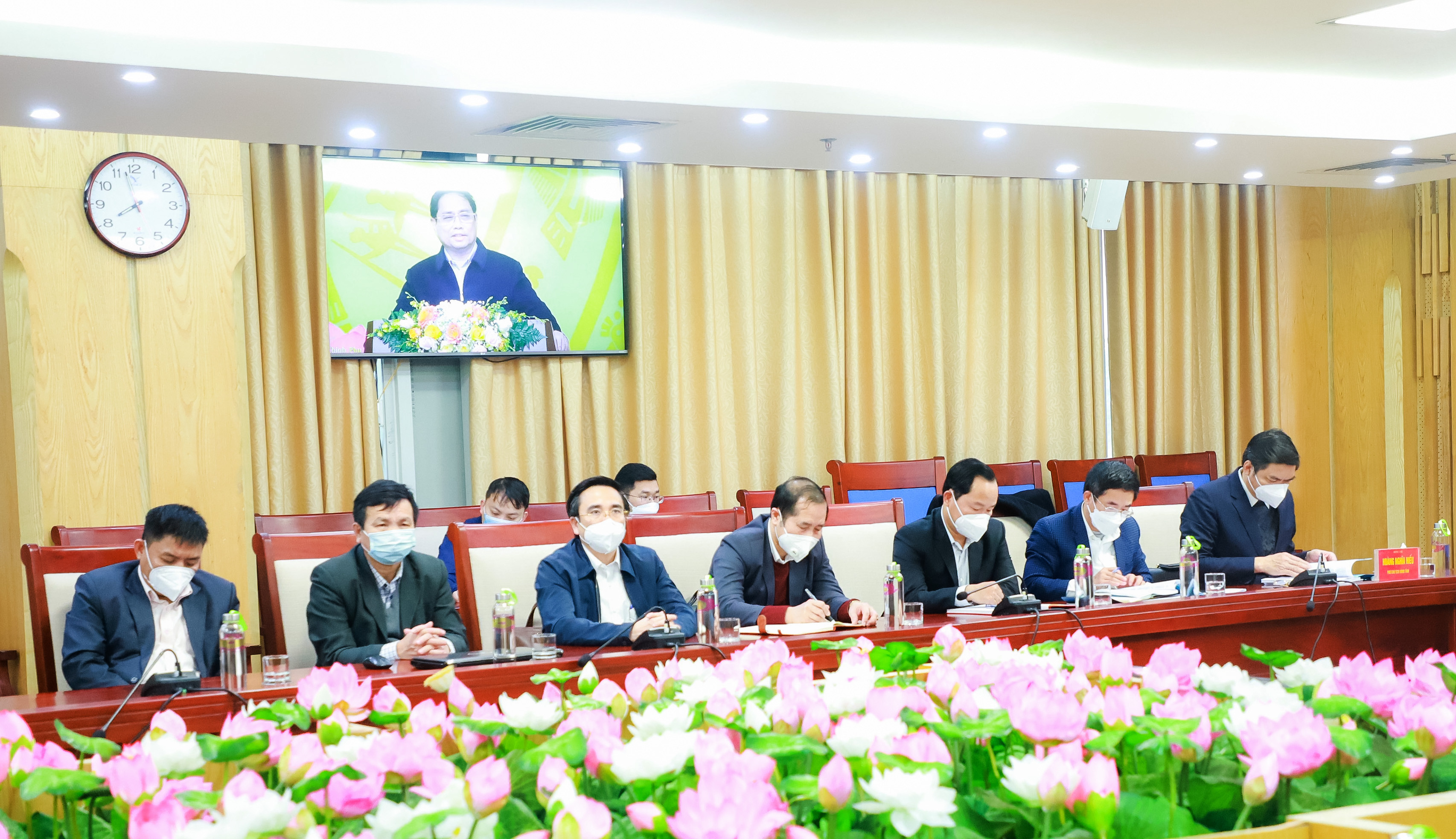 |
| Delegates attending the conference at the Nghe An province bridge. Photo: Thanh Duy |
Also at the conference, the Organizing Committee commended organizations and individuals with outstanding achievements in implementing Resolution No. 13-NQ/TW.

